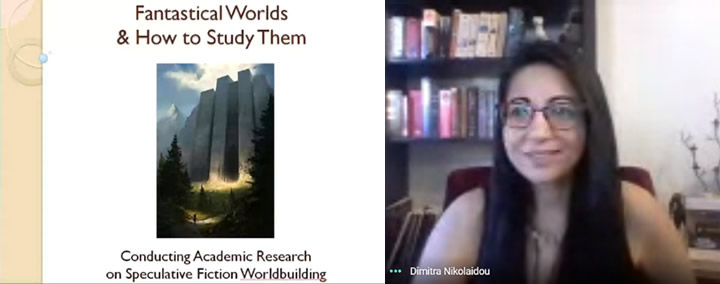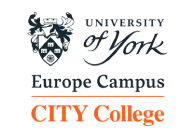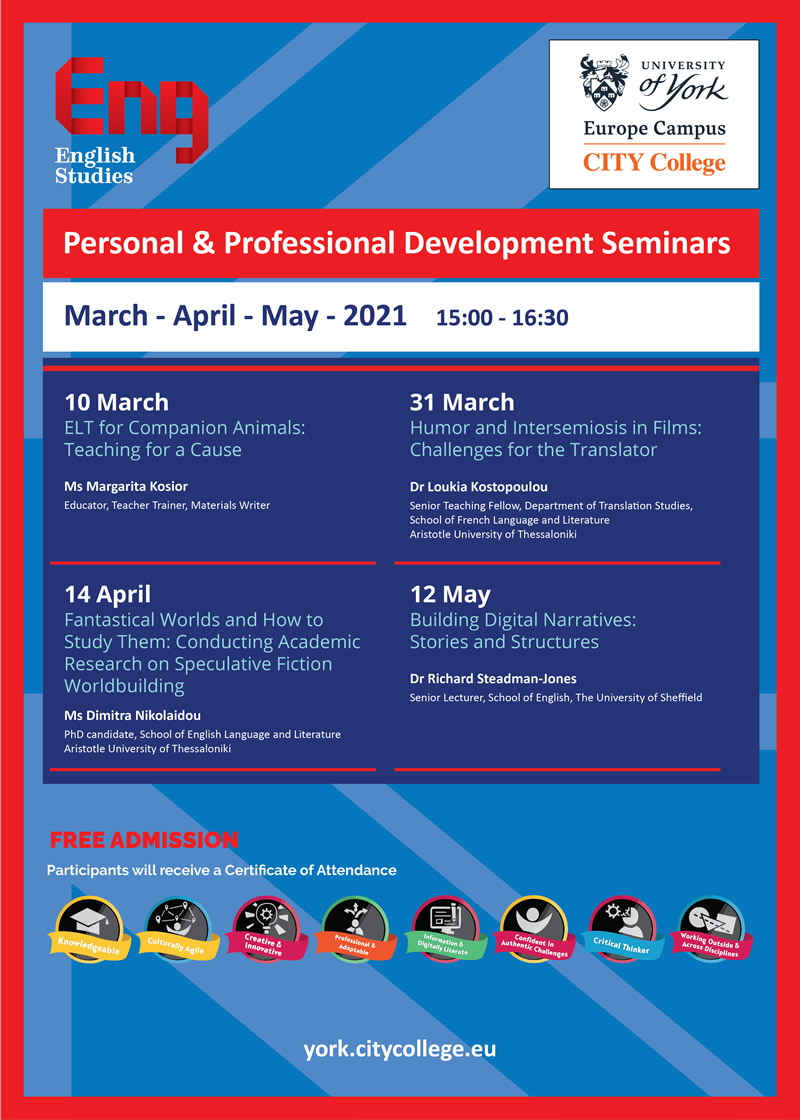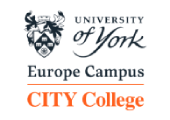English Studies Seminar: 'Fantastical Worlds and How to Study Them: Conducting Academic Research on Speculative Fiction Worldbuilding'
Think of a world…any world…imaginary…slightly imaginary…do you just read about it…talk about it…live in it…? This is what the ESD was called upon to initially consider in the seminar that took place on Wednesday 14th April titled: “Fantastical Worlds and How to Study them: Conducting Academic Research on Speculative Fiction Worldbuilding.” Ms Dimitra Nikolaidou offers her insights, knowledge, and expertise on a rich, entertaining even escapist area, but also one that has begun receiving more attention from academia.
Ms Nikolaidou primarily informs of the vastness of worldbuilding, how the term has been applied so broadly that it is difficult to utilize in critical discussions. There are also some noted misunderstandings, for instance, worldbuilding is not to be confused with setting. Instead, worldbuilding involves studying the ways in which authors/creators conjure worlds but also how we as readers or viewers or even gamers perceive those worlds. Drawing on multiple examples from Dune, to Tolkien, to World of Warcraft, to Dungeons and Dragons to Flash Gordon, Ms Nikolaidou raises our awareness towards the fact that certain genres like fantasy, horror and science fiction were not taken seriously and were not considered acceptable topic areas for academic research.

Fortunately, for all us avid fans out there, various reasons - either works receiving acclaims, becoming mainstream through adaptation or transmedia treatment, or the academic turn towards such genres and types of story worlds - these genres began receiving more serious scholarly attention. Thus, great opportunities were given to readers, writers, creators, fans as well as scholars and academics to explore these rich and fantastic worlds.
Of course, as Ms Nikolaidou explains, when it comes to academic research there are certain requirements: one must have read/viewed/played the respective text (and other similar ones), be familiar with certain traditional core theories, be familiar with the genre of the work, the medium of the work as well as tools and methodologies. While all this appears overwhelming, Ms Nikolaidou offers some guidelines that can assist in narrowing down certain items and becoming more selective. Aspects to consider include whether the world under examination is primary or secondary, the mode of worldbuilding (authorial, reader or critical worldbuilding) should also be taken into consideration as it can narrow and determine our approach as well as theoretical choices and tools we choose to utilize, and the actual fantasy world – as a whole, but also its parts and how they are structured.
Ms Nikolaidou presents certain categorizations that have been proffered by scholars to assist in how one approaches texts and the worlds in them. For instance, Ms Nikolaidou referred to Farah Mendlesohn’s 4 categories: portal/quest fantasy, immersive fantasy, intrusive fantasy, and liminal fantasy where each world has a different goal in service to the story. Whilst indicating certain challenges regarding the Authorial or Reader approach, Ms Nikolaidou focused more on the Critical Worldbuilding mode and drawing on Ekman and Taylor suggested two potential approaches one can utilize: the Architectural approach where emphasis is placed on the function of the place, the form and the meaning it generates as well as the idea(s) this conjured world represents, while the second is that of Dynamic Interplay an approach that takes into account the interrelationship of aspects within the world and even outside the world.
All in all, whether one is a writer, reader, or scholar, one can find unique, insightful, and fruitful ways to examine worldbuilding, contribute ideas, approaches, and concepts towards its impact across various disciplines and if one thing is certain it is that if a picture is worth a thousand words, imagine how many things we could say, discuss, write, and debate about worldbuilding!
Ready to join?
- Join via your mobile device, laptop or PC
- Enter the event 10' earlier by clicking on the 'Join' button (you will be requested to enter your email to join in)
- Make sure that you have your camera and microphone turned off
- Make sure you PIN the presenter's image so you can have a full screen view.










